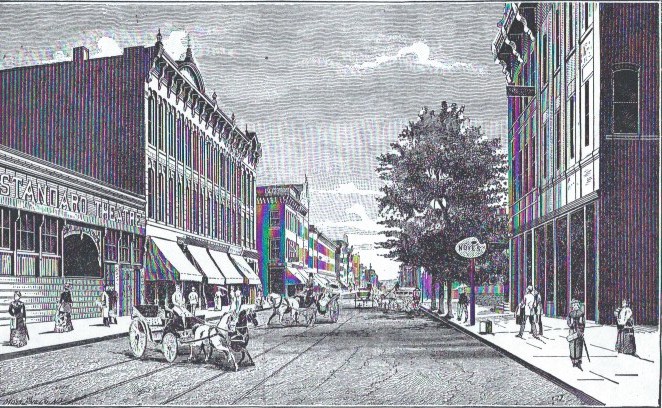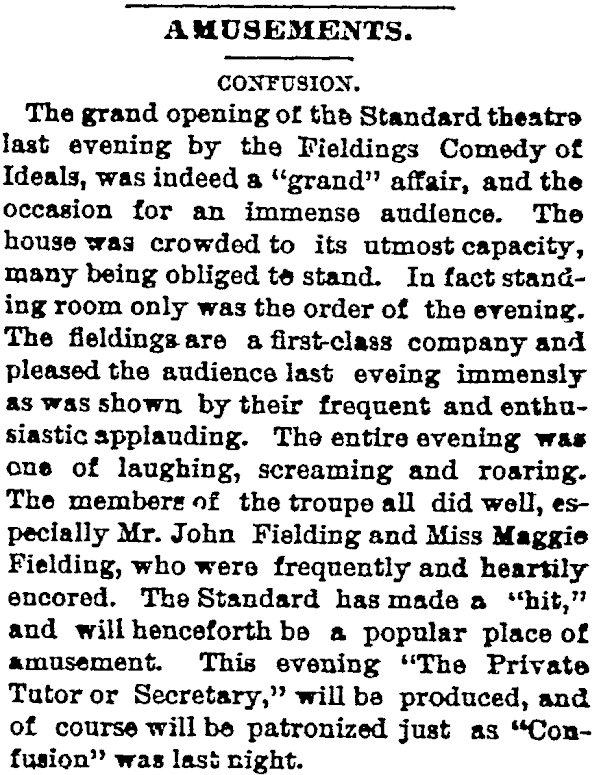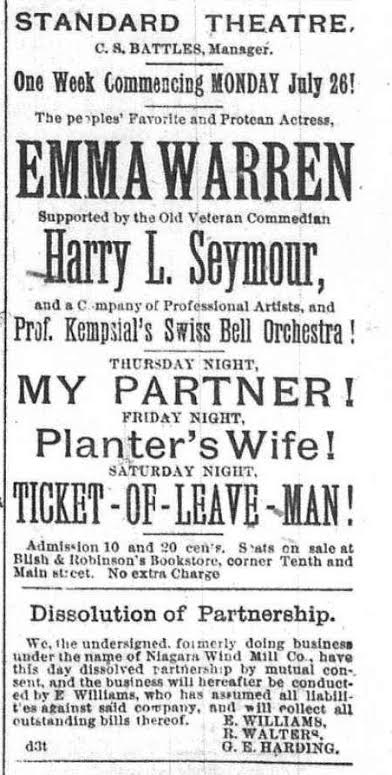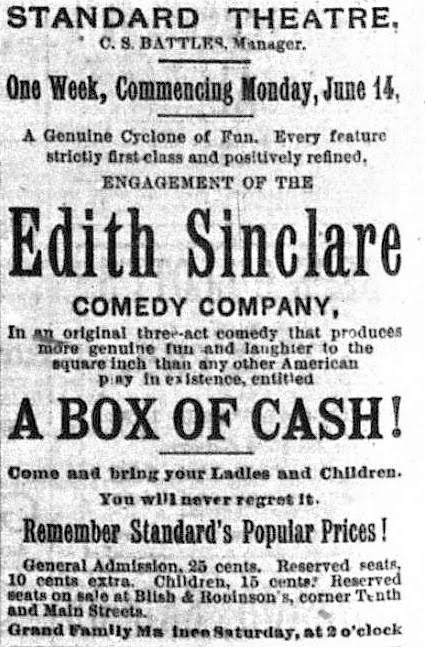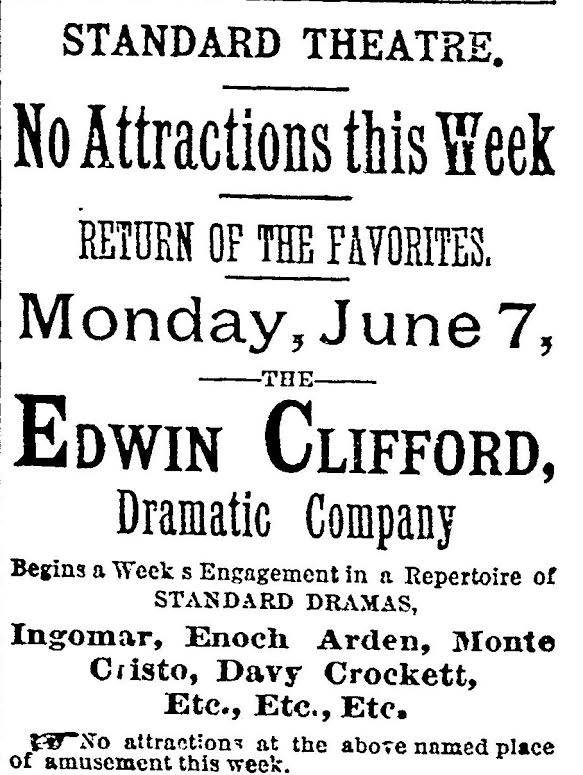Encyclopedia Dubuque
"Encyclopedia Dubuque is the online authority for all things Dubuque, written by the people who know the city best.”
Marshall Cohen—researcher and producer, CNN
Affiliated with the Local History Network of the State Historical Society of Iowa, and the Iowa Museum Association.
STANDARD THEATRE
STANDARD THEATRE. In May, 1886 painters and carpenters were busy renovating Clark's Rink operated by H. H. CLARK into the Standard Theatre for business. A new floor was slanted from the entrance on Main Street to the orchestra railing making the entrance seven feet higher than at the stage.
The stage was 33' x 50' and the orchestra space was 50' long and 7' wide. The drop curtain by Losman and Sanders featured scenery of a lake in Switzerland. The stage was illuminated by 150 gas lights while the auditorium had electric lighting. The house would seat eight hundred. (1) Seating cost fifteen and twenty-five cents. (2)
The grand opening on May 18, 1886 was recounted for readers in the following day's Dubuue Daily Herald:
Further renovation and remodeling were carried out in June, 1887. (3)
In 1890 controversy swirled around the theater's production of the play "Money Mad." There was a prayer in the play and "certain persons" told the manager that it was "wicked" to keep it in the performance. When faced with the "dilemma" of removing the prayer or not, the manager put the issue to a vote. Every member of the audience was given two tickets when entering the building. One ticket indicated support for removing the prayer, the other showed support for keeping it. The vote was tallied by the end of the play and it was found that only twenty-four voted for removing it and of these eight were not signed. (4)
The 1886-87 Dubuque City Directory listed the east side of Main between 9th and 10th.
---
Source:
1. "Standard Theater," Dubuque Herald, May 16, 1886
2. "The News in Brief," Dubuque Herald, May 23, 1886, p. 8
3. "Local News in Brief," Dubuque Herald, June 9, 1887, p. 4
4. "In Favor of Prayer," The Herald, April 27, 1890, p. 8


